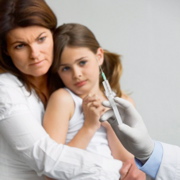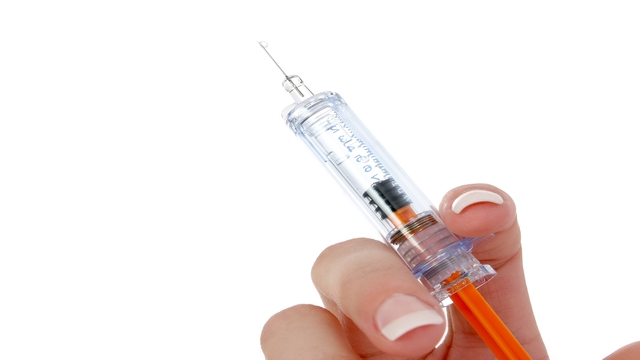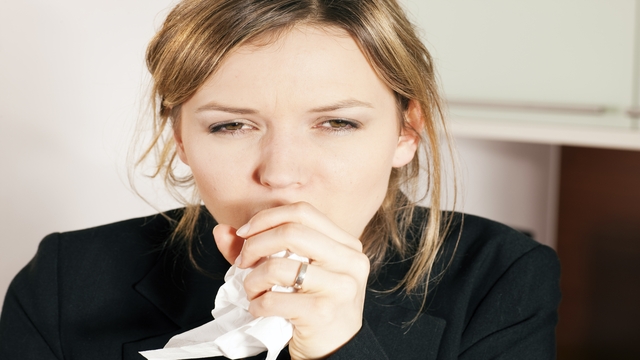Whooping cough is an illness that until recent years occurred mainly in children. It is caused by the bacteria bordetella pertussis. It has an incubation period of seven to 14 days.
It starts with the same symptoms as a normal cold, for instance, a stuffy nose, watery eyes and cough. Some mild cases of whooping cough abort after this time and do not progress any further and the sufferer or their family won’t be aware they had whooping cough.
In other cases, after a period of about two weeks, the cough increases in intensity and begins to occur in bouts. In older children and in moderate to severe cases of whooping cough, the child makes a whooping sound as they catch their breath. This is why pertussis became known as whooping cough. Babies less than a year old do not normally make this whooping sound.
Sometimes the sufferer will vomit and in severe cases, turn blue.
The coughing fits usually last several weeks and can in fact last three months or more, which is why parents used to refer to it as the 100-day cough. It often worsens at night and when the person is lying flat. It is infectious and can be passed on by droplets resulting from coughing or sneezing. However it is a cyclical illness, occurring in clusters every four to five years.
While the majority of people get through whooping cough with no complications, in some cases it can be fatal. The high risks groups are very young babies, particularly those under six months of age, and the immune-compromised. Fatalities from whooping cough do not usually occur in children over one year of age.
Whooping cough cases have been increasing in recent years due to vaccine waning, the low efficacy of the vaccine and fact that most parents were vaccinated themselves as babies and this prevents them from passing on natural immunity to their babies via breast feeding at a crucial time when it is needed most. Compounding this is the fact that a lot of newborns never even receive any breast milk at all.
Treatment for Whooping Cough
Whooping cough can be treated with antibiotics if they are given at the start of the infection. This normally stops the sufferer from being infectious to others. If more than three weeks has passed since the symptoms started, they will be ineffective as the bacterium that caused it is no longer present.
If the sufferer is a young baby or is having difficulty breathing, they may be admitted to hospital for treatment. This could include IV antibiotics (through a drip), and/or steroids to reduce inflammation and make breathing easier. In more severe cases, the child can be given oxygen via a face mask and have any mucus suctioned out to assist them. If a parent is worried about their child’s oxygen levels, even if they are having no difficulty breathing and have not been admitted to hospital, they can ask to have their child’s blood/oxygen level checked.
Other ways to help a child with whooping cough are:
• Making sure they have plenty of water. Dehydration makes the problem worse. If they are breast fed, keep offering breast milk. It contains antibodies to pertussis.
• Making sure they get plenty of sleep.
• Keeping them elevated during the night, to assist easier breathing.
• Alternative medicines such as homeopathy has been used to treat whooping cough. If the illness is lingering, pertussin 30X can be given to bring it to its conclusion and eliminate the "echo" effect. Acupuncture has also been used on children with whooping cough, with some success.
Sources: The British Medical Association Complete Family Health Guide, First UK Edition, 2000.
NHS Choices – Whooping Cough Treatments.
MercuryNews.com – ‘State sees Most Whooping Cough Cases Since 1955’, 6th October 2010.
News 8 Austin, 24th March 2010.
Natural Medicine for Children, by Julian Scott, MA, PhD, Gaia Books, London, 1990.
Joanna is a freelance health writer for The Mother magazine and Suite 101 with a column on infertility, http://infertility.suite101.com/. She is author of the book, 'Breast Milk: A Natural Immunisation,' and co-author of an educational resource on disabled parenting, in addition to running a charity for people damaged by vaccines or medical mistakes. Her 13 year old daughter, Jerrica, had whooping cough when she was a baby.





Add a CommentComments
There are no comments yet. Be the first one and get the conversation started!